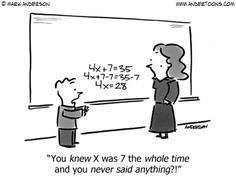You might not be able to identify what makes a great singer great, but you know an awful singer when you hear one. It’s hard to explain what makes a great essay great, but when I read a dreadful essay, I know it.
Every year, I write about 30 college application essays even though I graduated from college 40 years ago. I should say that I don’t exactly write them, but I do help high school seniors come up with topics for their essays and then help those kids to polish their essays after the student finishes saying what she wants to say. I can (and will) tell you what sort of topics are real winners, essays that say something meaningful and true about a student and presents that student in a thoughtful, charming, appealing way. But first I need to warn you about dreadful essays.
What makes a really terrible essay terrible?
The worst essays come from senior English class. I’m an English teacher, so I can tell you with confidence that English teachers aren’t always great writers themselves. Has your English teacher written and published a book or even an article? Has she won any writing awards? Furthermore, Your high school English teachers hasn’t known you, their student, for more than a month or so, so why are you relying on his advice and guidance when it comes to writing a superior college application essay? English class essays often reflect the advice of someone who wrote an article on “How to Write a College Essay” 10 years ago. English class essays are often boilerplate, hackneyed, dry, uninspired. English class essays could often describe you and half a dozen other kids in your school or your sport or your club with the same overused phrases. [Yawn.]
Awful essays often reflect too much interference by parents. When students write about how they’ve conquered their fear (or special ed issue or their shyness or their academic challenges or their ADD) and show you that they are great now and now they can conquer life in the same way that they’ve conquered their whatever, I know a parent has taken over. When kids say, “I trembled in fear” instead of “I thought the teacher might actually bite my head off,” I know a parent has taken over. And if I know when a parent has taken over an essay, so do admission counselors. It’s not considered cheating for a parent or teacher or tutor to review an essay for grammar and punctuation and spelling or even word choice, but the essay topic and the essay language still has to retain the voice of a 17-year old, not a 45-year old who wants the prospective college to see their student as a shining star, just as that parent does. Parents, don’t meddle with your kids’ essays. It makes it seem as if you don’t trust your student to speak for himself.
Truly terrible essays explain how you, the 17-year-old student, have life figured out. When I finished first grade, I asked my mother why I had to go to second grade since I already knew how to read and write. Any high school kid knows that you’re not done learning at age seven. And any adult knows that you haven’t understood everything there is to know about life or even about yourself at 17. When kids write that they tried to make the team but failed, and, on the verge of quitting, decided to try once again and then made the team, that’s nice, but they can’t say, “And now I understand perserverance.” When kids write that they lost the big game but “Now I understand that it’s all about teamwork,” they look juvenile. When kids write that their parents sent them to Nicaragua for two weeks to build houses and “Now I understand poverty,” no you don’t. All you understand is that your parents could afford to send you to Nicaragua for two weeks and not everyone lives in your suburban town. You look spoiled and naive to say otherwise. It’s much more sincerely humble to write that you are beginning to understand something specific about yourself, but that you have a lot more to learn, and in part that’s what you hope to do in college.
The worst essays spend four paragraphs giving the history of your medical issue or insecurity or academic challenge and finally mention where you are now in the last paragraph or two.
Nasty essays criticize others, even if they deserve it. No college wants to hear that you got a 70 in Italian or Math because you had an incompetent teacher. No one wants to read that if your parents hadn’t moved, you’d be an A+ student. No one (except your mom) cares that you were on your way to gymnastic stardom until you dislocated your shoulder. And definitely no one believes that you would have done something meaningful and important with your life – but for Covid. Every student was impacted by Covid. Every sports team had cancelled games. Every club closed. Every science research project was postponed. But no one wants to hear that you couldn’t run or play ball or dance or join a club or make a meaningful contribution because of Covid. What COULD you do? Did you tutor neighborhood children? Did you sew masks when no one could get PPE? Did you design science experiments with materials kids had at home to help your elementary school teacher? Did you teach a senior citizen how to FaceTime with his grandchildren? It’s no one’s fault that you didn’t live up to your own potential – but you could write about what you might do differently next time.
So what SHOULD you write about?
If you’re on a team, what makes you different from the student next to you? It could be something that everyone knows about you, like you’re the tallest kid in your grade or you’re addicted to chocolate or you love country western music or classic cars. It could also be something that no one knows about you, like you love to clean bathrooms because of how sparkly they look when you finish (that was me growing up) or why you prefer to visit with your grandma in an old age home than visit your three-year-old cousin or why you’ve always hated the color blue.
And how should you start an essay? Just start. You can add an introduction and conclusion later. You can fix the spelling and grammar later. You can chose more expressive verbs and adjectives later. You can rearrange the sentences later. I can edit nearly anything, but I can’t edit nothing. So put something down on paper. Start several essays. When you find a topic you can’t stop writing about, you’ve found a winner. Try writing it as a letter to a friend, at least temporarily. Try writing it as a diary entry for now.
Just start writing. You’ll evenutally need an essay between 500 – 650 words, about a page to a page and a half. But for goodness sake, please don’t write about how your coach is such an inspiring guy because he convinced you to try out for the team once again before his annual trip to Nicaragua!
Wendy Segal
http://www.wendysegaltutoring.com






